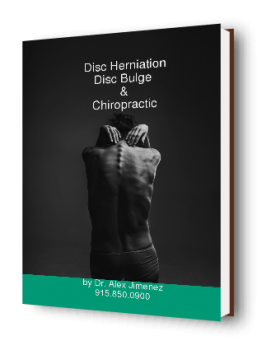

According to the National Institute of Occupational Safety and Health, or NIOSH, more than 24 percent of all injuries associated with the workplace and illnesses requiring individuals to miss days from work are due to back complications. As a matter of fact, healthcare workers have 4.5 times as many back injuries caused by overexertion than any other type of worker.
In addition, a performance improvement alliance consisting of more than 2,600 U.S. hospitals and more than 84,000 other healthcare sites known as Premier, national statistics demonstrated that six of the top ten professions with the highest chance for back injuries are nurse’s aides, licensed practical nurses, registered nurses, health aides, radiology technicians, and physical therapists. Among nurses, more than one one third of back complications are associated with the handling of patients and the frequency in which they are required to manually move patients. From a worldwide perspective, back injuries to nurses have a point prevalence of approximately 17 percent, an annual prevalence of 40-50 percent, and a lifetime prevalence of 35-80 percent.
These are only the accounted rates for reported incidents as many individuals working under healthcare jobs can experience back pain and other symptoms and never receive medical attention. Back complications are a world-wide issue as other studies from Greece, China, and Denmark have recently showed the relation between nurses and back injuries, to name a few.
Roughly 80 percent of back injuries cause temporary symptoms and nurses as well as other workers usually return to their normal functioning and continue working normally. But, for other healthcare workers, their back pain could develop into chronic pain and, for a small percentage of these individuals, their symptoms can last a lifetime. This can cause a considerable impact on the individual’s independence and income as well as create a significant effect on healthcare due to its overburdened system in losing care givers. With an average age of 46.8 years, as the nursing workforce ages, there’s been a critical shortage of nurses throughout the country, with a 20% shortage by 2015 and an estimated 30% shortage by 2020. Conserving the health of the nursing staff and reducing back injuries in healthcare personnel is essential.
When it comes to back injuries and nurses, there are a variety of factors that can ultimately affect the well being of an individual. Back pain and other work-related musculoskeletal injuries may be caused by factors such as age, genetics, being overweight or out of shape, poor posture, poor body mechanics, pregnancy, tension, and personal stress. Injuries may also often occur as a result of trauma from an accident, such as a slip or fall, or an automobile accident. There is also cumulative trauma to the spine and its related structures which may occur gradually over time due to a single or multiple of the above factors.
Back complications in healthcare workers are generally due to repetitive manual handling activities of patients which often involves heavy lifting associated with transferring and repositioning patients. It’s believed that lifting patients has become a leading problem for nurses and their spines because of an increasing obesity epidemic in the U.S. as well as a rapid increase in the number of older people who require assistance with their daily living activities. These factors, combined with working in abnormal positions and lifting or moving heavy equipment, can quickly cause back complications.
As a nurse, many individuals readily depend on you to assist them through their recovery process, and as such, its important to remain as healthy as possible. While it may appear challenging to avoid these factors in order to decrease the risk of back injuries, seeking medical attention as soon as symptoms for persistent back pain can be a good way of preventing further back complications as well as help ease the strain of work on your body. A chiropractor can diagnose any possible back injuries or conditions that could be causing your symptoms. Through the use of spinal adjustments and manual manipulation, chiropractors help gradually restore an individual’s health and overall wellness, in order to help you return to your normal everyday activities.
Related Posts
Sourced through Scoop.it from: www.elpasochiropractorblog.com
Nurses provide a valuable service to many individuals but, at the end of the day, healthcare workers most often experience work-related injuries and symptoms that can affect the lifestyles of many nurses. In fact, healthcare workers have 4.5 times as many back injuries caused by overexertion than any other type of worker. For more information, please feel free to ask Dr. Jimenez or contact us at (915) 850-0900.
By Dr. Alex Jimenez
Post Disclaimer
Professional Scope of Practice *
The information on this blog site is not intended to replace a one-on-one relationship with a qualified healthcare professional or licensed physician and is not medical advice. We encourage you to make healthcare decisions based on your research and partnership with a qualified healthcare professional.
Blog Information & Scope Discussions
Welcome to El Paso's Premier Wellness and Injury Care Clinic & Wellness Blog, where Dr. Alex Jimenez, DC, FNP-C, a board-certified Family Practice Nurse Practitioner (FNP-BC) and Chiropractor (DC), presents insights on how our team is dedicated to holistic healing and personalized care. Our practice aligns with evidence-based treatment protocols inspired by integrative medicine principles, similar to those found on this site and our family practice-based chiromed.com site, focusing on restoring health naturally for patients of all ages.
Our areas of chiropractic practice include Wellness & Nutrition, Chronic Pain, Personal Injury, Auto Accident Care, Work Injuries, Back Injury, Low Back Pain, Neck Pain, Migraine Headaches, Sports Injuries, Severe Sciatica, Scoliosis, Complex Herniated Discs, Fibromyalgia, Chronic Pain, Complex Injuries, Stress Management, Functional Medicine Treatments, and in-scope care protocols.
Our information scope is limited to chiropractic, musculoskeletal, physical medicine, wellness, contributing etiological viscerosomatic disturbances within clinical presentations, associated somato-visceral reflex clinical dynamics, subluxation complexes, sensitive health issues, and functional medicine articles, topics, and discussions.
We provide and present clinical collaboration with specialists from various disciplines. Each specialist is governed by their professional scope of practice and their jurisdiction of licensure. We use functional health & wellness protocols to treat and support care for the injuries or disorders of the musculoskeletal system.
Our videos, posts, topics, subjects, and insights cover clinical matters and issues that relate to and directly or indirectly support our clinical scope of practice.*
Our office has made a reasonable effort to provide supportive citations and has identified relevant research studies that support our posts. We provide copies of supporting research studies available to regulatory boards and the public upon request.
We understand that we cover matters that require an additional explanation of how they may assist in a particular care plan or treatment protocol; therefore, to discuss the subject matter above further, please feel free to ask Dr. Alex Jimenez, DC, APRN, FNP-BC, or contact us at 915-850-0900.
We are here to help you and your family.
Blessings
Dr. Alex Jimenez DC, MSACP, APRN, FNP-BC*, CCST, IFMCP, CFMP, ATN
email: coach@elpasofunctionalmedicine.com
Licensed as a Doctor of Chiropractic (DC) in Texas & New Mexico*
Texas DC License # TX5807
New Mexico DC License # NM-DC2182
Licensed as a Registered Nurse (RN*) in Texas & Multistate
Texas RN License # 1191402
ANCC FNP-BC: Board Certified Nurse Practitioner*
Compact Status: Multi-State License: Authorized to Practice in 40 States*
Graduate with Honors: ICHS: MSN-FNP (Family Nurse Practitioner Program)
Degree Granted. Master's in Family Practice MSN Diploma (Cum Laude)
Dr. Alex Jimenez, DC, APRN, FNP-BC*, CFMP, IFMCP, ATN, CCST
My Digital Business Card


